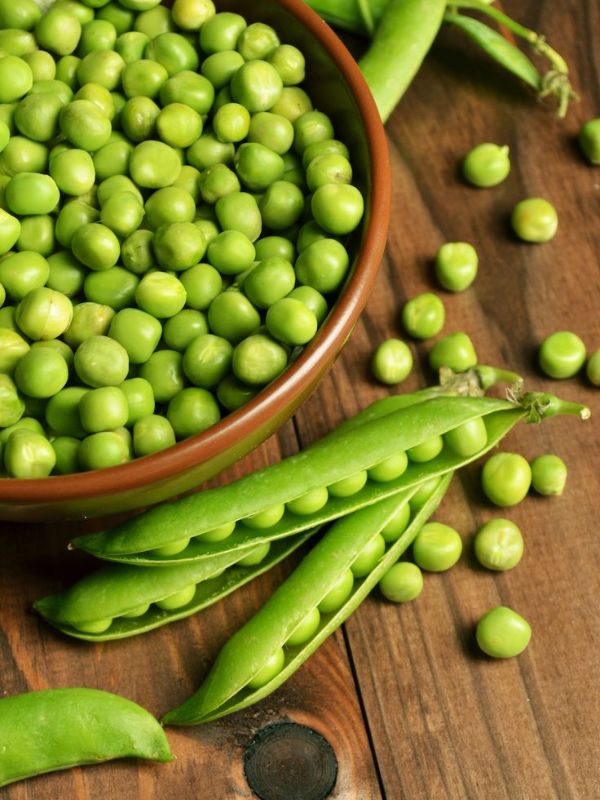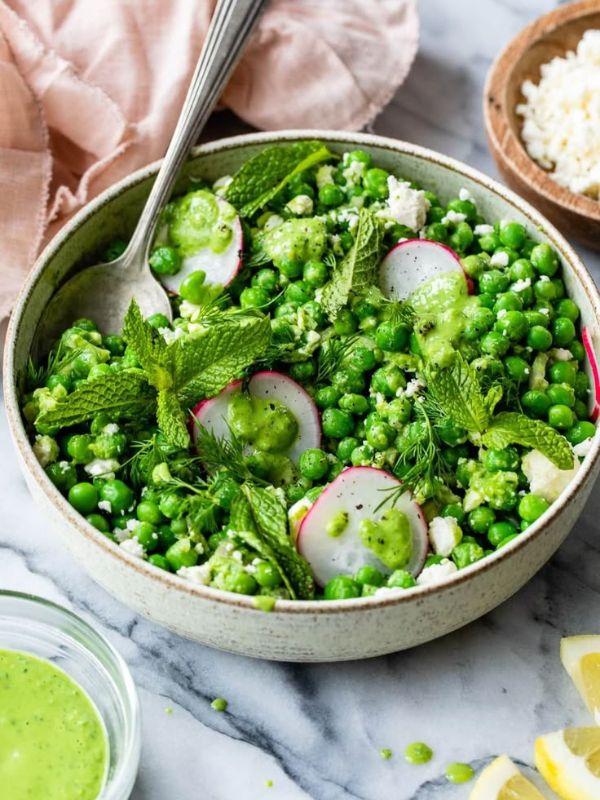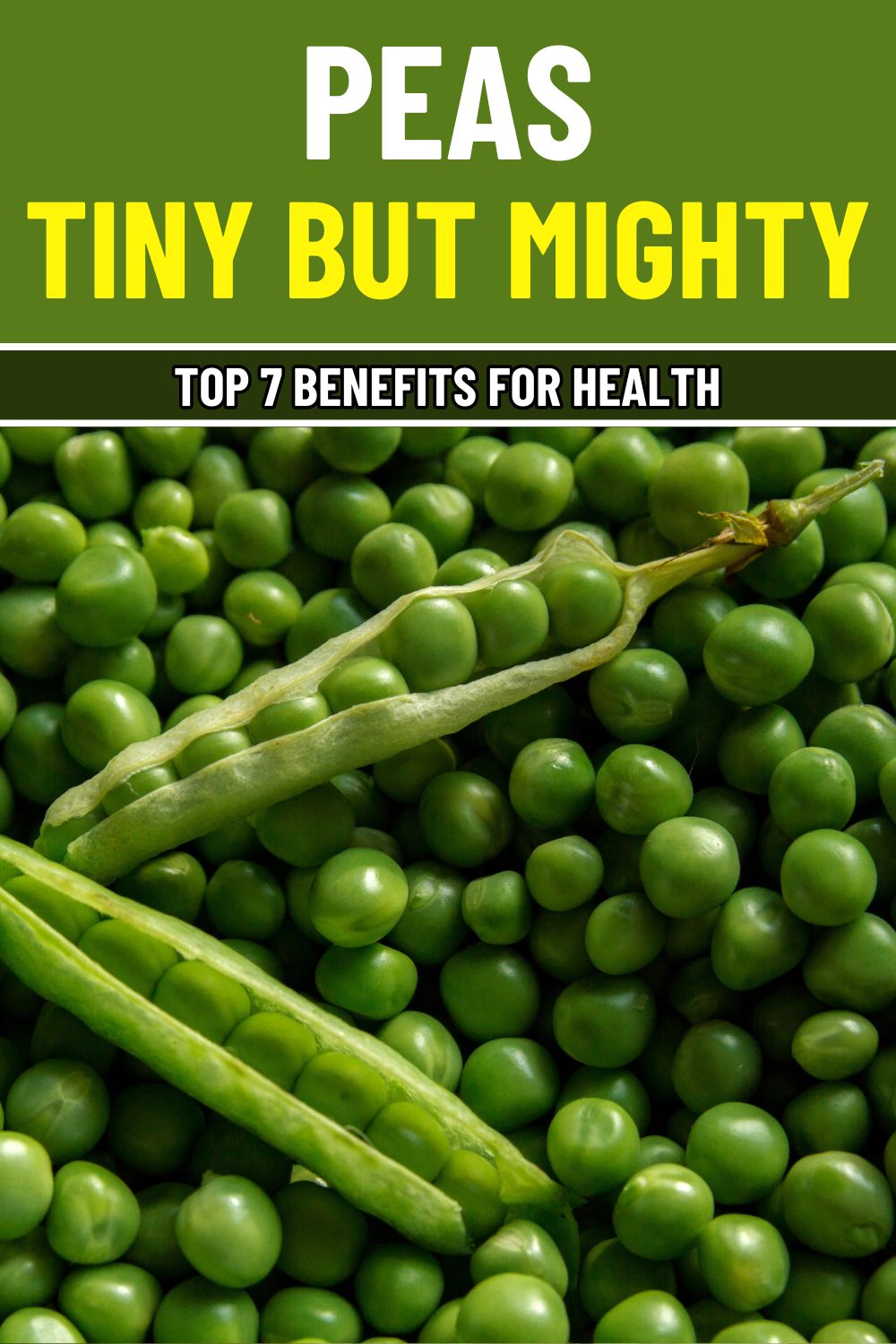Have you ever underestimated peas, thinking they’re just a simple side dish? It’s time to reconsider! These tiny green powerhouses are packed with nutrients and health-boosting properties that can transform your diet.
From supporting heart health to aiding weight loss, peas deserve a prime spot on your plate. Are you ready to uncover how this everyday vegetable can supercharge your health? Let’s dive into its impressive benefits, practical uses, and more!
Nutritional Profile of Peas
Peas may be small, but they’re loaded with essential nutrients. In 100 grams of green peas, you’ll get:
- Calories: 81
- Protein: 5.4 grams
- Fiber: 5 grams
- Vitamin C: 40% of your daily value
- Vitamin K: 24% of your daily value
- Folate: 16% of your daily value
- Iron: 7% of your daily value
Peas are also rich in antioxidants like flavonoids and carotenoids, making them a fantastic choice for your overall health.

Health Benefits of Peas
1. Boosts Heart Health
Peas are a rich source of dietary fiber, which helps lower bad cholesterol (LDL) levels and improve overall heart health. Additionally, the high potassium content supports healthy blood pressure levels.
Studies have shown that regular consumption of potassium-rich foods like peas can reduce the risk of cardiovascular diseases over time.

2. Enhances Digestive Health
The fiber content in peas promotes regular bowel movements and supports gut health. Fiber acts as a prebiotic, feeding the good bacteria in your gut, which in turn improves digestion and prevents constipation.
Consuming peas regularly can also reduce the risk of developing digestive disorders.
3. Strengthens Immunity
Peas are packed with vitamin C, which is crucial for a strong immune system.
One serving of peas provides nearly half your daily requirement of vitamin C, helping your body fight off infections, heal wounds, and maintain healthy skin.

4. Supports Weight Management
Peas are low in calories but high in fiber and protein, making them a perfect food for weight management. The fiber keeps you feeling full for longer, while the protein helps maintain muscle mass and supports metabolism.
Adding peas to your meals can curb hunger pangs and prevent overeating.
5. Promotes Eye Health
Peas contain carotenoids like lutein and zeaxanthin, which are essential for eye health. These antioxidants protect your eyes from harmful blue light and reduce the risk of macular degeneration and cataracts.
Including peas in your diet can help maintain sharp vision as you age.

6. Supports Healthy Blood Sugar Levels
The low glycemic index of peas, combined with their fiber and protein content, makes them an excellent choice for blood sugar control. They slow down the absorption of sugars in the bloodstream, preventing spikes and crashes.
Regular consumption of peas can be particularly beneficial for individuals with diabetes or those at risk of developing it.
7. Provides Energy and Stamina
Rich in iron and B vitamins, peas help combat fatigue and improve energy levels. Iron is essential for red blood cell production, which carries oxygen throughout your body.
A deficiency in iron can lead to anemia, leaving you feeling tired and weak. Adding peas to your diet can keep you energized throughout the day.

How to Use Peas in Your Diet
1. Fresh or Frozen Peas
You can add fresh or frozen peas to soups, stews, curries, or stir-fries. Simply blanch them for a few minutes before incorporating them into your dishes.
2. Pea Puree
Blend cooked peas with a splash of olive oil, garlic, and lemon juice to create a delicious pea puree. Use it as a dip or spread for bread and crackers.
3. Pea Salad
Combine peas with mint, feta cheese, and a drizzle of balsamic vinegar for a refreshing salad. This is a simple yet nutrient-packed dish that can be enjoyed as a side or a main course.
4. Pea Smoothies
For a unique twist, blend peas into your smoothies with fruits like banana, spinach, and apple. This is an easy way to sneak in more veggies.
5. Roasted Peas
Season peas with your favorite spices and roast them in the oven for a crunchy, healthy snack.

Cautions and Precautions
Peas contain natural compounds like lectins and phytic acid, which may cause bloating or gas in some individuals. To minimize this, ensure they are cooked thoroughly.
If you’re prone to kidney stones, consume peas in moderation as they contain oxalates, which can contribute to stone formation in sensitive individuals.
While rare, some people may have an allergy to peas. If you experience symptoms like itching or swelling, discontinue use and consult a healthcare professional.
Disclaimer
This article is for informational purposes only and is not intended to replace professional medical advice.
Always consult a healthcare provider before making significant dietary changes or trying new remedies.

Tiny But Mighty: The Surprising Health Benefits of Peas You Need to Know
